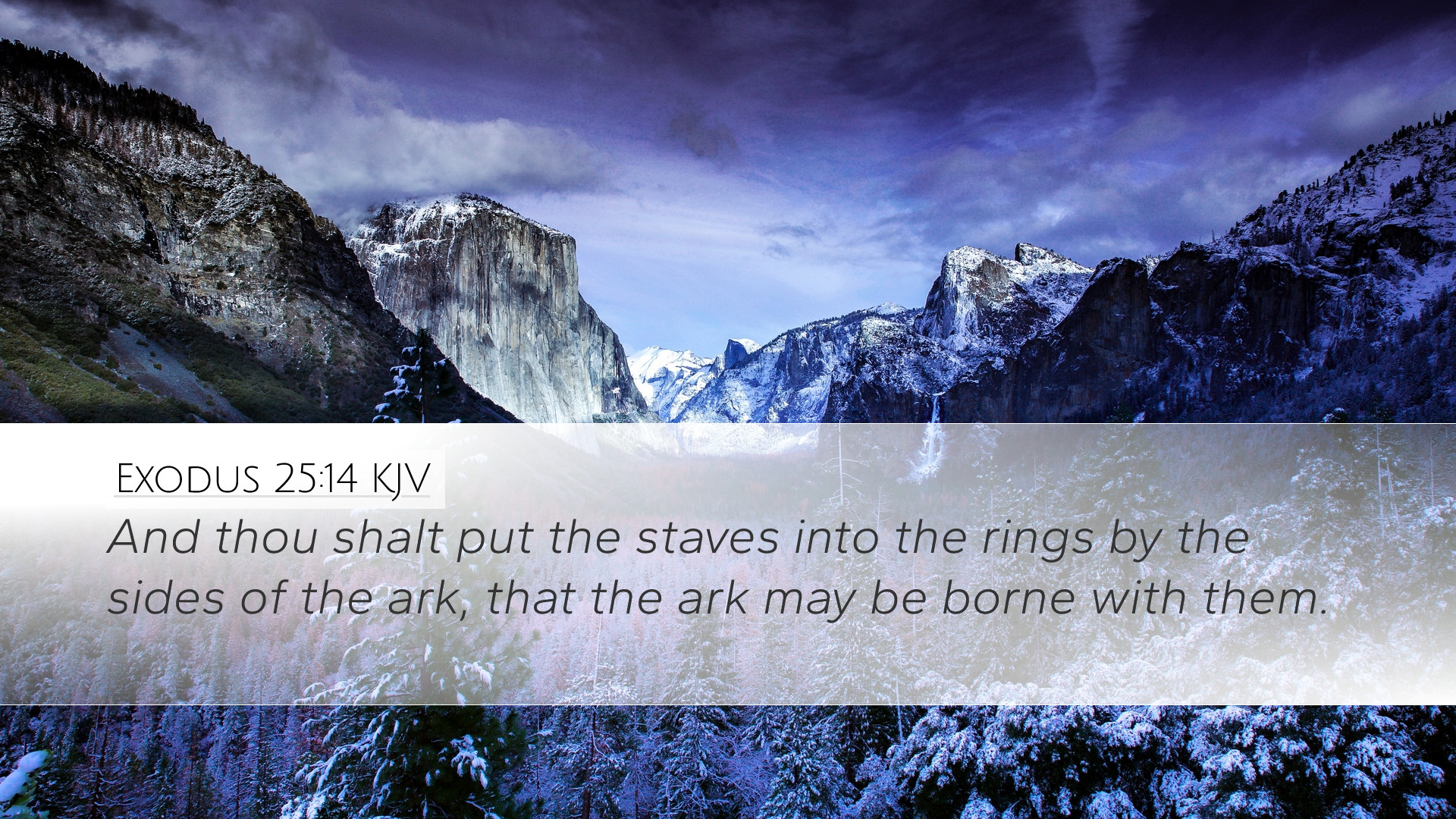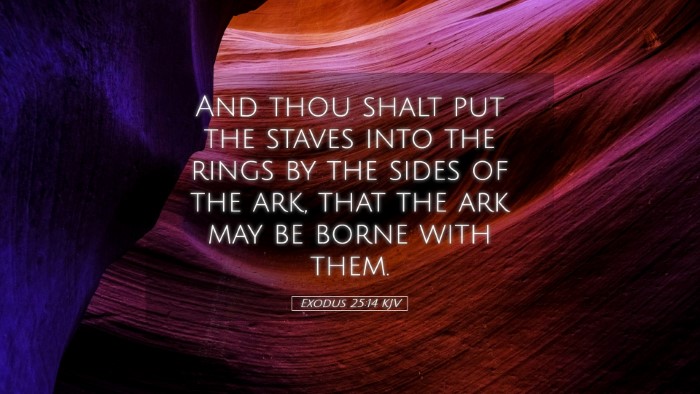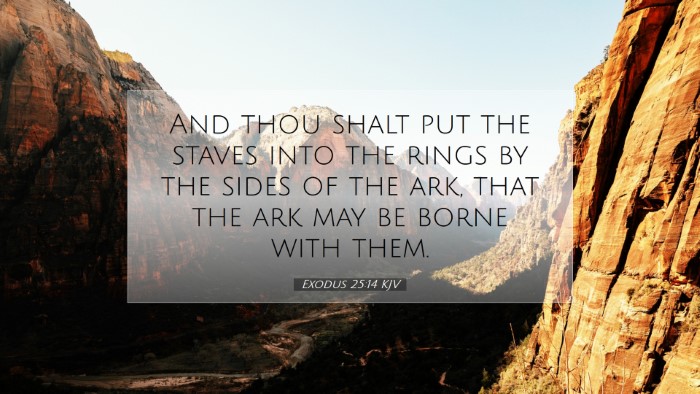Commentary on Exodus 25:14
Exodus 25:14 (ESV): "And you shall put the poles into the rings on the sides of the ark to carry the ark by them."
Introduction
This verse deals with the instructions given to Moses regarding the construction and handling of the Ark of the Covenant, a most sacred object in Israelite worship. The Ark was to be a symbol of God's presence among His people and carried specific meanings regarding the covenant established between God and Israel.
Contextual Analysis
The instruction in Exodus 25:14 occurs within the broader context of the instructions God gives concerning the Tabernacle and its furnishings. As Matthew Henry notes, these details show that God desires to dwell among His people and provides means for His holy presence to be with them in a structured manner.
Purpose of the Ark
- The Ark is not merely a box but a representation of God's covenant with His people.
- It housed the tablets of the Law, showcasing the moral and ceremonial statutes that guided Israel.
- It served as a physical manifestation of God's promise and presence in the midst of His people.
Significance of Carrying the Ark
Albert Barnes emphasizes the importance of how the Ark was to be carried. The poles mentioned in this verse were essential for the portability of the Ark, reflecting the sacredness attached to it. The Ark was never to be touched by human hands directly, symbolizing the holiness of God and the reverence required in approaching Him.
The Divine Protocol of Approach
This protocol for carrying the Ark serves as a reminder of the necessity of approaching God with reverence. Adam Clarke notes that these instructions highlight the distinction between the divine and human; therefore, the items used in worship must reflect that sacredness. Clarke further points out that this mode of carrying reinforces the idea that God's presence must be treated with utmost care.
Theological Implications
The act of using poles to carry the Ark speaks volumes about divine order and holiness. There are several theological implications derived from this practice:
- Holiness of God: The Ark's careful handling indicates God's holiness and the seriousness of His covenant.
- Human Responsibility: Israel is tasked with maintaining the reverence associated with God's directions, signifying their commitment to His covenant.
- Messianic Foreshadowing: The Ark can be seen as a foreshadowing of Christ, who bears the presence of God among us, and reflects how we are to carry the message of the Gospel.
Relevance for Contemporary Worship
The instructions related to the Ark extend beyond mere antiquity; they bring forth principles that are applicable today. Pastors and church leaders can reflect on the following applications:
- Worship Settings: Just as the Ark was to be venerated, our worship spaces must reflect the glory and holiness of God.
- Reverence in Approach: Encouraging congregations to approach God with reverence and preparedness, recognizing His holiness in worship.
- Community Responsibility: The community of believers shares the responsibility to uphold the sacredness of the worship experience.
Practical Applications
Reflecting on Exodus 25:14 can lead to practical insights for personal faith and congregational life:
- Preparation for Worship: Just as the Israelites prepared the Ark for transport, individuals should prepare their hearts and minds for communal worship.
- Symbolism in Worship: Understand the significance of symbols in worship, just as the Ark itself served as a physical reminder of God's presence.
- Community as Carriers: Churches are to see themselves as carriers of God's message and presence, tasked with displaying His glory to the world.
Conclusion
Exodus 25:14 serves not only as a historical narrative but as a profound theological statement about God's desire to be with His people and the reverence due to Him. The acts of carrying and handling the Ark underscore a faith that respects divine boundaries while embracing the relationship offered by God. For pastors, students, and scholars alike, this verse is a call to reflect on how God's holiness should influence worship and daily living.


